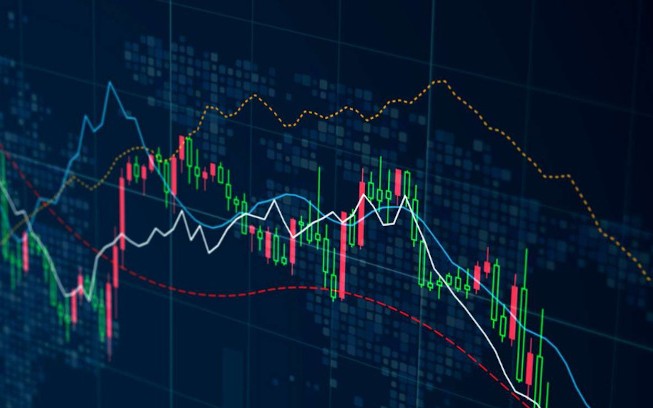
The Ultimate Guide to Forex Trading Online Platforms
In the modern financial landscape, forex trading online platform Morocco Brokers have become essential for traders looking to access the global currency markets. Forex trading online platforms have revolutionized how individuals engage in currency exchange and have made it more accessible than ever. With just a computer or smartphone, traders can participate in the Forex market from anywhere in the world. This article will guide you through the intricacies of Forex trading online platforms, covering essential tools, strategies, and tips to optimize your trading experience.
Understanding Forex Trading
Forex, or foreign exchange, is the largest financial market in the world, with a daily trading volume exceeding $6 trillion. Unlike traditional stock markets, Forex trading involves the exchange of currencies which can happen 24 hours a day, five days a week. This decentralized market operates through a global network of banks, brokers, institutions, and individual traders.
Choosing the Right Online Platform
The first step to successful Forex trading is selecting a reliable online platform. There are several factors to consider when choosing a Forex broker:
- Regulation: Ensure the broker is regulated by a recognized authority, such as the Financial Conduct Authority (FCA) in the UK or the Commodity Futures Trading Commission (CFTC) in the U.S.
- Trading Fees: Compare spreads, commissions, and any additional fees associated with different platforms. Lower costs can significantly affect your profitability.
- Trading Tools: Look for platforms that offer robust trading tools, such as advanced charting, market research, and algorithmic trading capabilities.
- User Experience: An intuitive and user-friendly interface can greatly enhance your trading experience, especially for beginners.
- Customer Support: Reliable, accessible customer service can be a lifesaver in times of need, so ensure your chosen broker provides effective support.

Types of Trading Accounts
Most Forex brokers offer different types of trading accounts, catering to the varying needs of traders:
- Standard Accounts: Ideal for experienced traders, these accounts typically require higher minimum deposits and may have lower spreads.
- Mini Accounts: These are designed for beginner traders who want to start with a smaller amount of capital, usually with a lower minimum deposit.
- Micro Accounts: Suitable for novice traders, these accounts allow you to trade smaller lot sizes, reducing risk.
- Islamic Accounts: For traders adhering to Islamic law, brokers often offer swap-free accounts that do not involve interest.
Popular Trading Platforms
There are several popular trading platforms available that cater to different trading styles and preferences. Here are a few widely recognized ones:
- MetaTrader 4 (MT4): One of the most popular trading platforms worldwide, MT4 offers an array of technical indicators and customizable charts. It supports automated trading through Expert Advisors (EAs).
- MetaTrader 5 (MT5): An upgrade from MT4, MT5 provides additional features including more timeframes, advanced order types, and a built-in economic calendar.
- CTrader: Known for its user-friendly interface, CTrader is favored by more experienced traders for its advanced charting capabilities and speed.
- NinjaTrader: This platform is primarily known for futures trading but also allows Forex trading. It is popular among day traders due to its advanced charting tools and market analysis capabilities.
Essential Trading Tools
Alongside the trading platform, several essential tools can assist traders in making informed decisions:

- Charts: Price charts are vital for analyzing market trends and patterns. Look for platforms that offer a wide range of charting tools.
- Technical Indicators: These statistical tools help traders make predictions about future price movements, including moving averages, RSI, and Fibonacci retracements.
- Economic Calendar: An economic calendar highlights upcoming economic events and news releases that can impact currency prices, such as interest rate decisions or employment reports.
- Trading Signals: Many platforms provide signals that indicate buy or sell opportunities based on technical analysis, helping traders capitalize on market movements.
Strategies for Successful Trading
Developing a solid trading strategy is crucial for success in Forex trading. Here are a few strategies that traders commonly use:
- Scalping: This short-term strategy involves making numerous trades throughout the day, capitalizing on small price fluctuations.
- Day Trading: Day traders open and close positions within a single day, aiming to profit from short-term price movements without holding positions overnight.
- Swing Trading: Swing traders hold positions for several days or weeks, targeting price swings and trend changes.
- Position Trading: This long-term strategy involves holding positions for months or years, relying on fundamental analysis to guide trading decisions.
Risk Management
Success in Forex trading is not just about winning trades but also about managing risks effectively. Here are some tips for proper risk management:
- Set Stop-Loss Orders: Always use stop-loss orders to limit potential losses on any trade.
- Risk Only What You Can Afford to Lose: Never risk more than a small percentage of your trading capital on a single trade.
- Diversify Your Portfolio: Avoid putting all your capital into one currency pair. Diversify to mitigate risks.
- Keep Emotions in Check: Emotional trading can lead to disastrous results. Stick to your trading plan and avoid impulsive decisions.
Conclusion
Forex trading online platforms have democratized access to currency markets, allowing anyone with a computer or smartphone to participate. By carefully selecting a reputable broker, utilizing the right tools, and adopting sound trading strategies, both novice and experienced traders can navigate the Forex landscape successfully. Remember, successful trading is not only about making profits but also about ongoing learning, practice, and effective risk management. Embrace the journey, and as you gain experience, you will likely find it a rewarding venture.
